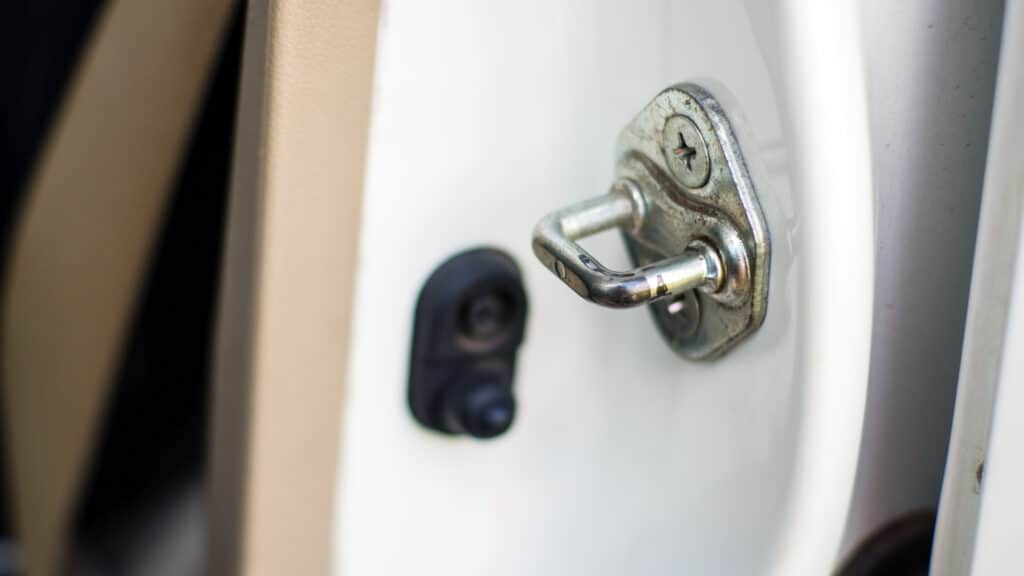As part of its recall on 2021-2022 Ford and Lincoln vehicles with EcoBoost engines, Ford is offering affected customers extended warranty coverage for up to 10 years or 150,000 miles (whichever comes first).
This warranty extension, part of customer satisfaction campaign 24N12, follows the closure of a federal investigation into Ford’s 2.7L and 3.0L “Nano” EcoBoost engines.
The National Highway Traffic Safety Administration (NHTSA) closed its investigation after Ford provided extended warranty coverage to impacted Ford and Lincoln owners and offered engine replacements under the Ford EcoBoost engine recall.
Ford EcoBoost Engine Issues: Table of Contents
- What Ford/Lincoln vehicles have the extended EcoBoost engine warranty?
- Ford “Nano” EcoBoost Engine Recall Facts
- What’s wrong with the Ford Nano EcoBoost engine?
- Who can I contact about my Ford EcoBoost issue?
- How will they fix the Ford EcoBoost Engine issue?
- How is the Ford EcoBoost engine replacement different?
- Ford Nano EcoBoost Engine Investigation (Now Closed)
- What should I do about my Ford’s EcoBoost engine?
- What if my Ford or Lincoln’s engine can’t be fixed?
- How Ford Lemon Law Works in California
- Contact A Ford Lemon Law Attorney Today
What Ford/Lincoln vehicles have the extended EcoBoost engine warranty?
Ford or Lincoln vehicles with EcoBoost engine issues include:
- 2021–2022 Ford Bronco
- 2021–2022 Ford F-150
- 2021–2022 Ford Edge
- 2021–2022 Ford Explorer
- 2021–2022 Lincoln Nautilus
- 2021–2022 Lincoln Aviator
The extended warranty lasts through 10 years or 150,000 miles, whichever is earlier. Your Ford or Lincoln vehicle must be covered by Ford’s “Nano” EcoBoost engine recall to benefit from this extended warranty coverage.
Ford “Nano” EcoBoost Engine Recall Facts
Ford recalled approximately 90,000 vehicles equipped with 2.7-L and 3-L Nano EcoBoost engines. Here are some of the quick facts:
- NHTSA Campaign ID: 24V635000
- Ford Recall Number: 24S55
- Number of Vehicles: 90,736
- Vehicle Models: 2021–2022 Ford Bronco, F-150, Edge, Explorer, Lincoln Nautilus and Aviator vehicles.
- Issue: Ford’s Nano EcoBoost engines may fail and lose motive power without warning.
- Cause: Excessively brittle intake valves may crack and break due to a manufacturing issue.
- Warning Signs: An engine malfunction indicator lamp will light up on the cluster. Ford and Lincoln drivers may notice the vehicle running rough.
- Remedy: Engines that do not pass specific diagnostic tests will be replaced with engine assemblies with non-defective intake valves.
Interim recall notices were mailed October 17, 2024. Another recall notice will be sent when the final remedy is available.
What’s wrong with the Ford Nano EcoBoost Engine?
The 2.7-L and 3-L EcoBoost engines have faulty intake valves that crack, causing rough running and catastrophic failure within 20,000 miles. Over half of reported EcoBoost engine failures happened within 5,000 miles of vehicle ownership.
The intake valves crack and break because they are made out of a specific alloy called “Silchrome Lite,” which is prone to becoming hard and brittle when overheated during the manufacturing process.
According to NHTSA’s forensic analysis, the intake valves were overheated during the groove grinding process, which changed the material’s microstructure. This allows the weakest parts of the valve to fracture during normal driving conditions, causing the engine to fail. Specifically, these fractures will happen at the third keeper grove.
Who Can I Contact About My Ford EcoBoost Issue?
You may report your Lincoln or Ford EcoBoost engine problems at either of these points of contact:
- Ford/Lincoln customer service department: 1-866-436-7332
- NHTSA Safety Hotline: 1-888-327-4236
If your Ford or Lincoln issues go unresolved, you may contact a lemon law attorney to discuss your legal options, a process which we will describe at further length.
How Will They Fix The Ford EcoBoost Engine Issue?
Ford and Lincoln dealerships will conduct a diagnostic test to determine if your 2.7-L or 3-L EcoBoost engine has faulty intake valves. If your EcoBoost engine fails this test, it will be replaced with an engine assembly that has intake valves that “fit specification of hardness.”
The diagnostic test consists of two parts. First, the Ford or Lincoln dealer will inspect the vehicle to determine its cumulative number of engine cycles. If this vehicle does not meet the engine cycle threshold, the dealer will accumulate high revolutions per minute (RPM) engine cycles as part of a service procedure. If the vehicle does not pass the engine cycle accumulation, the engine will be replaced.
How Is The Ford EcoBoost Engine Replacement Different?
Ford owners experiencing issues with their car’s engine should understand the root cause of Ford EcoBoost engine problems. The recall report states that the intake valves in the replacement engines are “within specification of hardness.”
Documents produced earlier in NHTSA’s investigation point to the alloy “Silchrome Lite” being the culprit of the intake valve’s brittleness. Silchrome Lite was used in Ford and Lincoln vehicles produced as early as May 2021 and as late as October 31, 2021.
In October 2021, Ford implemented an important design modification: new intake valves would be made out of a new alloy called “Silchrome 1”, which is apparently less susceptible to overheating during the machine grinding process. According to NHTSA’s ODI resume at the end of its investigation, “these corrective actions were successful in eliminating the risk of intake valve fracture for subject vehicles produced after October 2021.”
Because of that, Ford vehicles featuring the newer intake valve material are not part of the recall list, as the motor has a limited chance of running into similar issues.
Ford Nano EcoBoost Engine Investigation (Now Closed)
The Ford EcoBoost engine investigation sought to uncover why 2.7-L and 3-L EcoBoost engines would experience catastrophic failure in 2021-2022 Ford Bronco, Edge, Explorer, and F-150 and Lincoln Aviator and Nautilus vehicles. According to the closing ODI resume, the Ford and Lincoln vehicles would experience a loss of motive power without any warning and lose the ability to restart.
The Ford “Nano” EcoBoost engine investigation was conducted by NHTSA’s Office of Defects Investigation from September 29, 2023 to October 31, 2024. At the start of the Ford EcoBoost engine investigation, the population of vehicles was more than 700,000. When NHTSA closed the investigation, the population was an estimated 411,315.
At the end of the Ford EcoBoost investigation, NHTSA was aware of 1,066 reported incidents of loss of motive power.
What Should I Do About My Ford’s EcoBoost Engine?
If your Ford or Lincoln has a 2.7-L or 3-L Nano EcoBoost engine, take the following steps to confirm if your vehicle is covered by the EcoBoost recall and warranty extension.
- Use NHTSA’s “Check For Recalls” and search your Vehicle Identification Number (VIN) to confirm if you are part of any open recalls.
- Contact Ford’s customer service department at 1-866-436-7332 to schedule an appointment. Provide your VIN to the customer service agent. Tell them you are inquiring about Ford Recall 24S55 and ask if you are eligible for the 10-year/150,000 mile warranty extension as part of customer satisfaction campaign 24N12.
If your Ford or Lincoln is not covered by the recall but continues to experience engine issues, it is still worthwhile to schedule a repair appointment. If nothing else, a repair visit can help you get your engine issues properly diagnosed. At the end of each repair visit, you will receive documents called “work orders” or “repair orders,” which help establish a repair history for your vehicle. These documents will describe the issues you reported to the dealership or technician, the services performed on your vehicle and the itemized costs associated with each service, even if the cost was ultimately covered by the manufacturer. These documents will also record the date and mileage at which you brought your vehicle in for a visit.
What if my Ford or Lincoln’s engine can’t be fixed?
If you feel unsafe driving your Ford or Lincoln, we recommend you stop driving it and explore your legal options.
However, we do recommend that you keep all copies of work orders or repair orders for any repair visits you have had so far. Sometimes, a shortage of repair or replacement parts can delay the availability of an important safety repair. Even if you could only get your vehicle issues diagnosed during a repair visit, we recommend that you hold onto any paperwork provided to you by the dealership or repair facility.
If your Ford or Lincoln cannot be repaired within a reasonable time frame or repair attempts, you may be able to pursue legal options.
How Ford Lemon Law Works in California
If your Ford or Lincoln vehicle has specific issues that cannot be addressed by the dealership within a reasonable number of repair visits, your vehicle may be considered defective under California law.
The California Lemon Law considers a vehicle to be defective if a manufacturing defect affects the vehicle’s use, value or safety and cannot be repaired within a reasonable number of repair attempts during the warranty period.
If a vehicle is found to be considered defective under the California Lemon Law, a vehicle owner or lessee can recover cash compensation, a vehicle replacement or a repurchase of the vehicle. This last reward is commonly known as a “lemon law buyback.” Learn how lemon law buybacks are calculated.
Lemon law settlement amounts can range from roughly the amount you paid for the vehicle, to three times the amount. However, lemon law settlement amounts on the higher range typically occur because the manufacturer was found to have willfully violated the law.
If you suspect your Ford or Lincoln vehicle to be a lemon, contact our lemon law firm to get a free consultation into your legal options.
Contact A Ford Lemon Law Attorney Today
Our Ford lemon law attorneys have substantial knowledge and experience in lemon law cases. We only get paid if you win. Our attorneys’ fees and costs are compensated by the auto manufacturer as part of the final settlement.
It all starts with a free consultation. Call us at 833-208-8181 to get started.
References
- (2024, August 23). Engine Intake Valves May Break. Track Recalls & Safety Issues by NHTSA ID; National Highway Traffic Safety Administration. https://www.nhtsa.gov/?nhtsaId=24V635000
- (2023, September 29). ODI RESUME. Subject: Loss of Motive Power. National Highway Traffic Safety Administration. https://static.nhtsa.gov/odi/inv/2023/INOA-EA23002-10790.pdf
- (2024, October 31). ODI RESUME. Subject: Loss of Motive Power. National Highway Traffic Safety Administration. https://static.nhtsa.gov/odi/inv/2023/INCLA-EA23002-10828.pdf
- Part 573 Safety Recall Report 24V-635. (2024). https://static.nhtsa.gov/odi/rcl/2024/RCLRPT-24V635-5852.PDF
- SUBJECT: NEW VEHICLE DEMONSTRATION / DELIVERY HOLD -Advance Notice – Safety Recall 24S55 Certain Various Model Year Vehicles Engine Valve Inspection AFFECTED VEHICLES Vehicle Model Year Assembly Plant Build Dates. (2024). https://static.nhtsa.gov/odi/rcl/2024/RCMN-24V635-4996.pdf
- (2024, October 31). ODI RESUME. Subject: Loss of Motive Power. National Highway Traffic Safety Administration. https://static.nhtsa.gov/odi/inv/2023/INCLA-EA23002-10828.pdf






